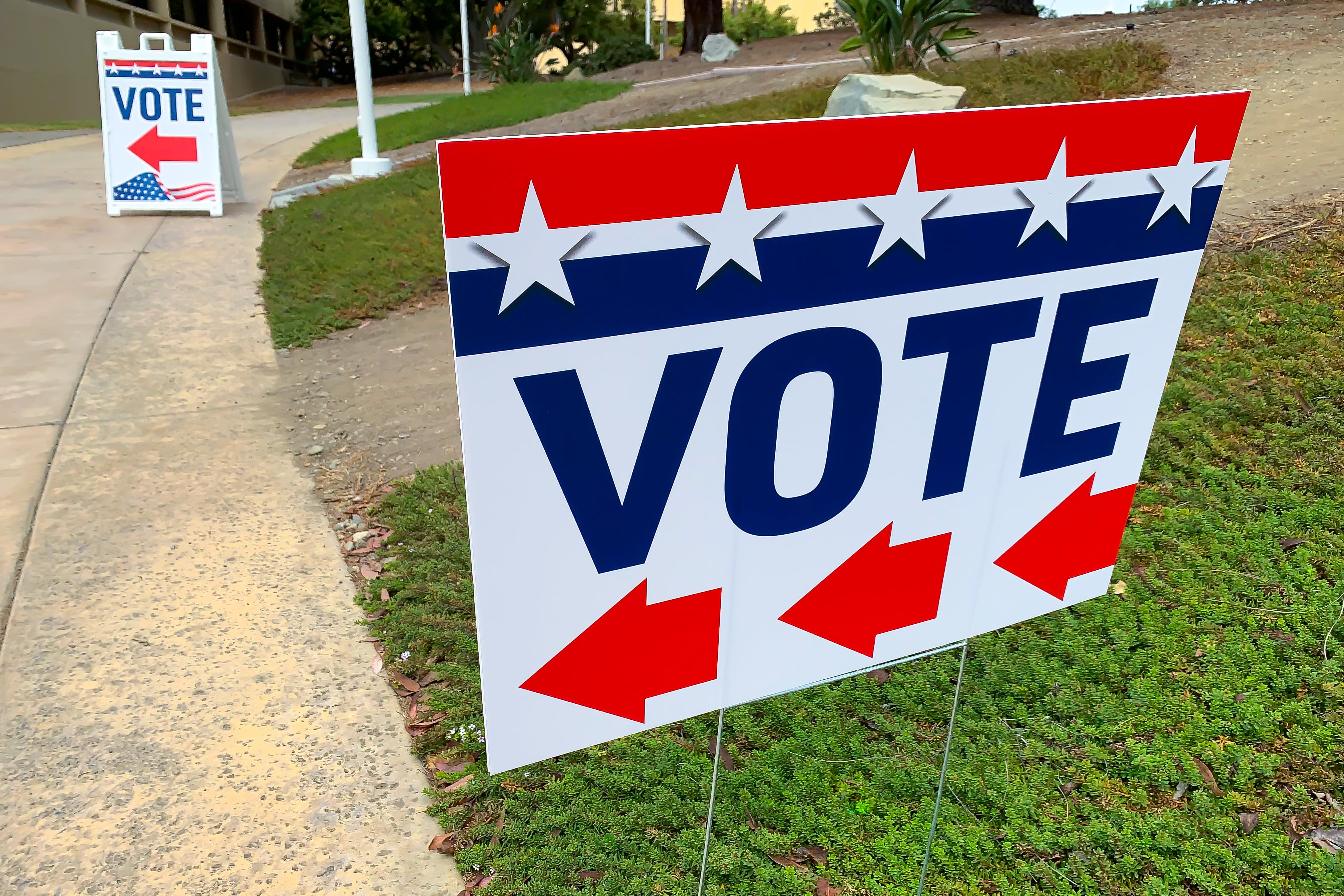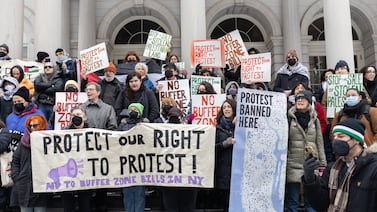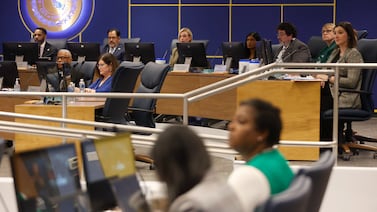Sign up for Chalkbeat Detroit’s free newsletter to keep up with the city’s public school system and Michigan education policy.
The Detroit school district is no longer moving forward with plans to hold a special millage election this spring, but the proposal likely will be on the ballot in 2026.
The board for the Detroit Public Schools Community District had voted earlier this year to place an operating millage on the ballot for the district in May, anticipating such a millage would be needed due to a dispute with state officials.
The millage would have replaced an existing millage operated under the former Detroit Public Schools, which exists solely to pay off millions of dollars in debt racked up during decades of mostly state control. That includes a nine-year-old, $150 million emergency loan from the state that the district had been set to pay off this month.
But Superintendent Nikolai Vitti said this week during a board finance committee meeting that the election is no longer needed this year because of new direction from the Michigan Department of Treasury.
The district’s original plan to hold a special election began because the Treasury Department had told the district that once it pays off the emergency loan, the DPS operating millage, whose revenue has been paying off that loan since 2016, would be eliminated. The department also said DPSCD would also need to ask voters to approve its own operating millage.
Now, instead of paying the loan off this month, the district will extend the payments through September 2026. The Treasury Department had suggested such an extended payment plan months ago, but during a court hearing in January, the district’s lawyer said DPSCD officials were concerned that the state would have the authority to change that schedule unilaterally once the district agreed to it.
That is no longer a concern.
“The District received direction from Treasury and the Attorney General in writing that the District controls the repayment timeline for the outstanding Emergency Loan (EL),” Vitti wrote in an email to Chalkbeat.
A spokesperson for the Treasury department declined to comment Friday because of the pending litigation.
The pending litigation is a lawsuit DPSCD filed in December against the Treasury Department and State Treasurer Rachael Eubanks. The lawsuit addresses a broader question of whether revenue from the DPS operating millage can be used to pay off capital debt. The district believes it can, but Treasury has said no.
The DPS 18-mill operating millage, which is levied on businesses and other non-homestead property in the city, has generated revenue to pay off the loan. Revenue from a separate debt millage is being used to pay off $1.6 billion in capital debt as well as about $350 million in debt to the state School Loan Revolving Fund. District officials say that remaining capital debt can be paid off years earlier than scheduled — and save Detroit taxpayers millions in interest — if revenue from the operating millage can be used for the capital debt.
The lawsuit is being heard in the Michigan Court of Claims. State Judge Christopher Yates ruled earlier this month against the district’s request for a preliminary injunction. Vitti said he expects the judge to rule on the larger issue related to the capital debt within 60 days.
Lori Higgins is the bureau chief for Chalkbeat Detroit and writes about Detroit schools and state education policy. You can reach her at lhiggins@chalkbeat.org.





